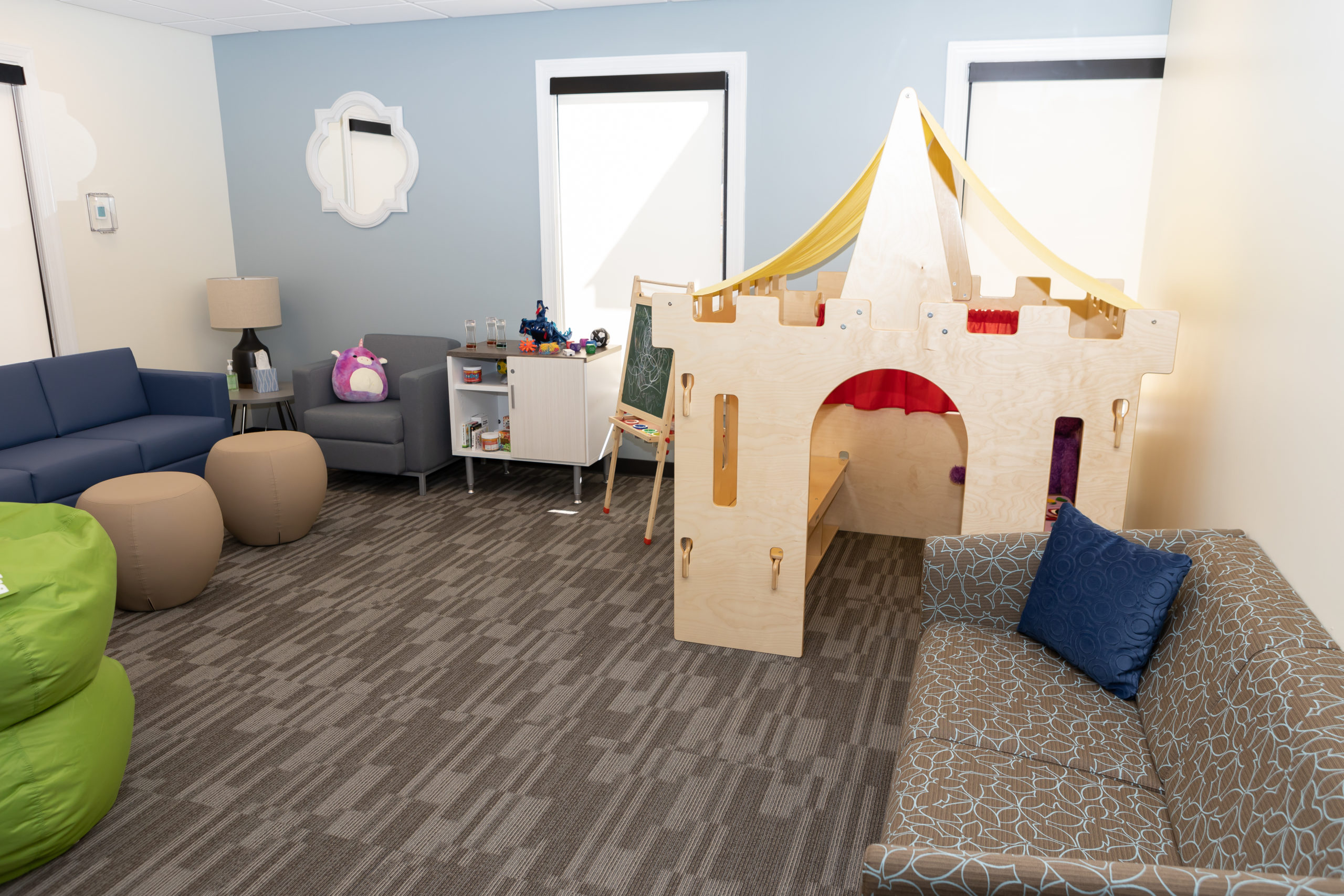The news of another school shooting may be impacting the mental health of many of us – including military children. CVN recently developed mental health tips and guidance, and these resources may be especially helpful in talking with children this week. As always, our 22 Cohen Clinics stand ready to help military families in our communities.
 Bobbi Pate, LCMHC, RPT, a clinician with The Steven A. Cohen Military Family Clinic at Hope for The Warriors offered five tips in April to help support kids’ mental health, including:
Bobbi Pate, LCMHC, RPT, a clinician with The Steven A. Cohen Military Family Clinic at Hope for The Warriors offered five tips in April to help support kids’ mental health, including:
Look Out for Changes in Behavior – Some children’s stress may manifest as physical symptoms, such as stomach aches or sleeplessness, or in their behavior, such as clinginess to caregivers or not wanting to attend school. Their worries may also manifest as negative or irritable behaviors. To help with the physical symptoms, it may be beneficial to provide them with winding down activities. It is important to help them maintain their healthy routine.
Use Grounding/Relaxation Strategies – Help your child combat negative feelings by visualizing a calm or safe space. Talk them through creating a place in their mind, real or imagined, that they can tap into whenever and wherever to bring about a sense of calm. Ask them to imagine what they see, hear, smell, taste, and touch to tap into the sensory aspects of their place and make it more calming and secure. Other ways your child can quiet their mind and relax are listening to calming music, doing yoga, or practicing balloon breathing/belly breaths.
CVN’s Month of the Military Child campaign offered a wide variety of resources including indicators that your child/teen may benefit from seeing a therapist.
For younger children, our partner Sesame Street in Communities offers valuable content to help children and families cope with violence in their communities. These articles, pintables, and videos aim to provide comfort and support in difficult times.
The National Child Traumatic Stress Network is sharing a pair of helpful guides:
- Parent Guidelines for Helping Youth After the Recent Shooting
In this 3-page tip sheet, the NCTSN describes how a shooting may affect children and teens as well as parents and other caregivers. The tip sheet lists reactions common among people of all ages, offers coping tips for caregivers, and suggests ways for caregivers to support children and youth in coping with their reactions to a shooting. - Tips for Parents on Media Coverage
In this 2-page tip sheet, the NCTSN explains the effects that media coverage of a violent incident may have on children and teens and suggests ways for parents and other caregivers to help children and teens manage reactions to media coverage and the violent event. The tip sheet also includes tips for families with involvement in a violent incident.
SAMHSA and the NCTSN offer additional tips to help parents and educators to recognize stress reactions in youth and talk to children and teens about community trauma:
- Tips for Talking With and Helping Children and Youth Cope After a Disaster or Traumatic Event: A Guide for Parents, Caregivers, and Teacher (via SAMHSA)
- Helping Youth After Community Trauma: Tips for Educators (via NCTSN)
Other Gun Violence Prevention Resources:
By Anthony Guido
CVN Vice President, Communications & PR
